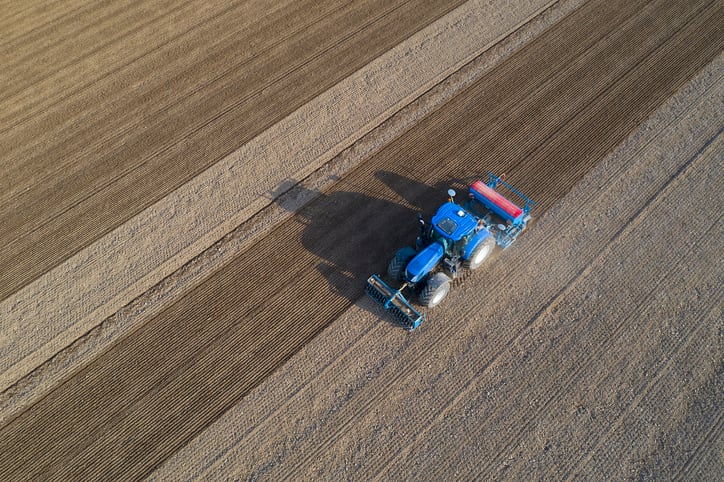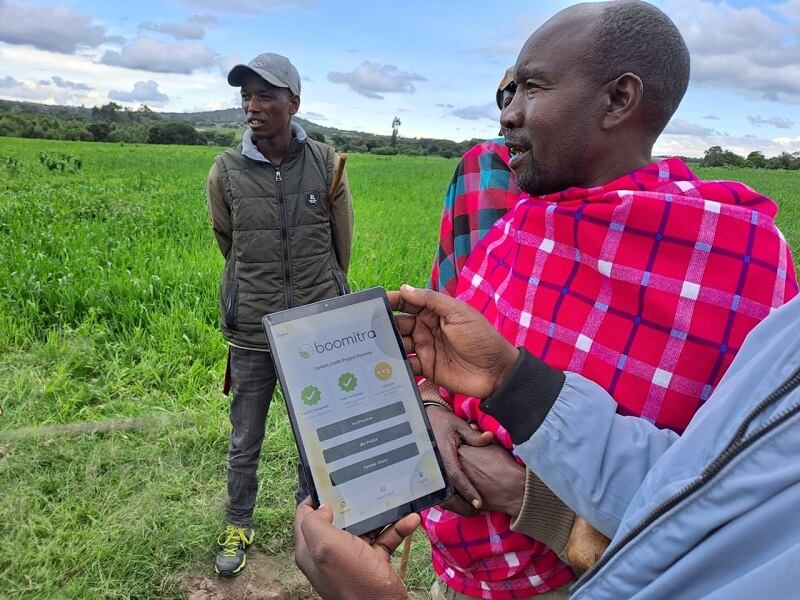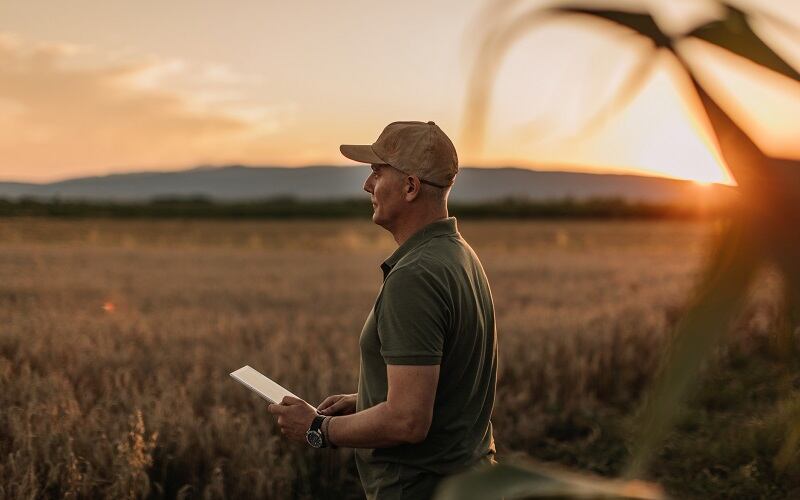Over half (56%) of adults want UK farmers to prioritise farming practices which, preserve and enhance nature and wildlife, according to new research commissioned by the ground-breaking food and farming certification scheme Fair to Nature.
The survey of 2,250 adults undertaken by Ipsos reveals over half those surveyed (56%) want UK farmers to concentrate on ‘preserving and enhancing nature and wildlife’ when asked to select three from a list of six possible different farming priorities regarding the environmental impacts of farming.
In addition, half of the respondents (50%) said they would also like farmers to preserve and enhance natural water systems and 39% chose preserving and enhancing soil health at this same question.
In fact, in research undertaken in December, halting biodiversity loss was one of the top three environmental impacts of agriculture UK adults want to see addressed on farms, with 37% selected this, along with 39% choosing use of environmentally harmful pesticides and water pollution chosen by 36%.
And the research reveals a widespread lack of knowledge of the terms regenerative, sustainable or nature-friendly farming, with only two in 10 people surveyed saying they either know this type of farming ‘very well’ or know a ‘fair amount’ about it.
The findings build on similar research from March last year which highlighted growing consumer concern about nature loss and a desire to halt its decline, with 67% of UK adults found to be concerned with the decline in the variety of UK wildlife compared to 50 years ago.
Mark Varney, Head of Fair to Nature, said: “These results reveal that one in four people think UK farming has a negative effect on nature and wildlife, but our research also highlights that UK consumers want our food and agricultural system to be a power for good, helping protect and preserve our landscape and wildlife. This is a golden opportunity for organisations to adopt nature-friendly farming and food production to respond to their customers’ wants and needs.
“Making sense of what this means in practice can be confusing, especially with buzzwords such as ‘regenerative’ and ‘sustainable’ hitting our shelves. It needn’t be this complicated as our new report shows. Setting out a proven approach for including nature as a key component within all food businesses’ UK supply chains, it demonstrates how, in the wake of terrifying declines in nature, we can - and must - do something urgently to bring farmers, producers and consumers the clarity needed to enact real change.”
Compiled by experts from the RSPB’s Fair to Nature scheme, which claims it is the UK’s only certification scheme with a focus on biodiversity, the report looks at the vital role of nature in underpinning our ability to do business. From providing raw materials and energy, to the food, water, and clean air we need to survive, nature is the foundation of every aspect of human life. Biodiversity loss means these vital services are under threat.
The report, Without Nature There is no Food, also outlines the solution; if every farm made 10% of land available for good quality wildlife habitat, nature on farms could be restored and protected, ensuring that the essential services it provides are there for us all in the future.
Mark Varney added: “By restoring the balance of nature in farming and increasing biodiversity, farmers reap the benefits of the RSPB Fair to Nature standard, with increased pollinator numbers, improvements in soil quality and a reduction in the volume of chemicals required which saves them money.
“Fair to Nature is a proven approach to restoring the balance of nature in farming, providing food businesses with the means to act on wildlife declines, empowering and supporting farmers with a viable way of protecting and restoring nature on their farms, and harnessing consumers’ buying power to deliver the transformative change needed in our food and farming system.”
RSPB Fair to Nature claims it has already achieved incredible results: one farm has seen a 226% increase in breeding birds, a 213% increase in farmland butterflies, almost double the floral diversity and up to 19 times more bees than typical farms.
Farmers subsidising cheap food ‘cannot continue’
But a separate report launched at the 2024 Oxford Farming Conference highlighted other problems for UK farmers. The report – called ‘Is the UK Food Supply Chain Broken? – argued that farmers subsidising consumer appetites for cheap food cannot continue.
The report’s author, Ged Futter, said recent global and climatic events had exposed supply chain weaknesses causing financial losses for farmers. “The level of risk is at all-time high, there is consistent oversupply, and coupled with this, a deep understanding of a farm’s cost of production and its profitability is often lacking.”
The report, based on more than 40 interviews with business owners across fresh produce, eggs, poultry, pork, importers, and frozen food manufacturers, found that while retailers had been criticised by farmers and suppliers, retail to consumer was still the most sustainable and efficient distribution model.
But Futter complained the risk versus reward ratio was ‘out of kilter’, pushing farmers to question whether they could continue and driving down investment.
“For some, it seems that it is the end of the road: glasshouses are being closed and orchards are being grubbed,” said Futter.
“Increasingly, farmers are leaving the sector and using the land for non-agricultural uses [such as setting up as a wedding venue, wind farm, caravan storage or a dog field] because they simply cannot afford to continue subsidising the cheap food that the UK consumer has been used to.”
The OFC Director responsible for the report is Ali Capper, an apple and hop grower, she said: “The new business landscape of today’s supply chains with volatility created by geopolitical challenges, unprecedented inflation, increased interest rates, climate change and the cost-of-living crisis require everyone responsible for feeding UK consumers to re-think their approach to supply chains before it is too late. The costs of production for fruit and veg growing has increased by between 20-27% depending on the enterprise. That’s simply unsustainable.”





